9. Pirates of the Caribbean: Dead Man’s Chest
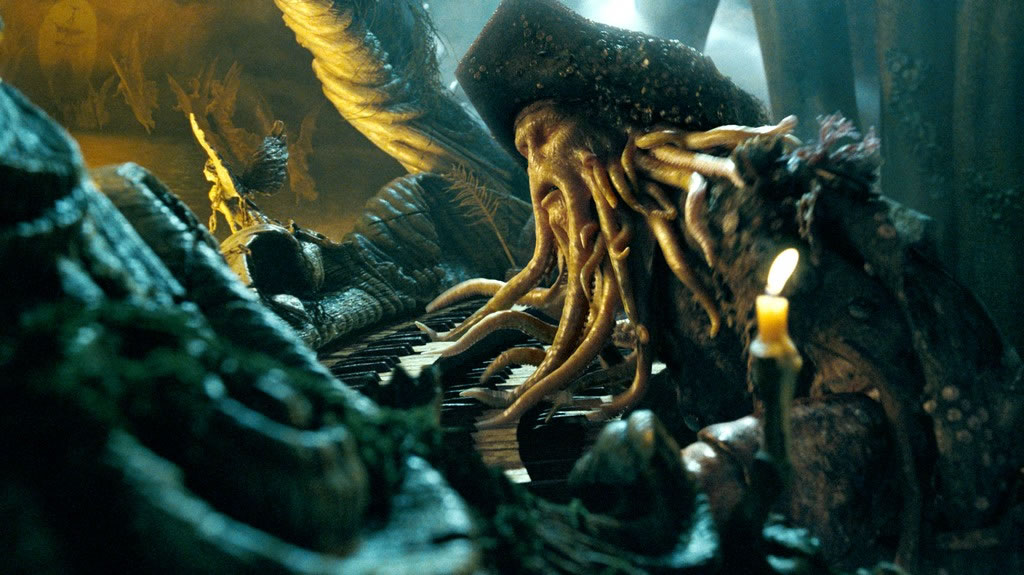
Blowing any other competitors right out of the water, Pirates of the Caribbean: Dead Man’s Chest easily topped 2006 domestically and became just the third film to gross over a billion dollars worldwide.
The franchise has since run aground, but Gore Verbinski’s original trilogy was rather inspired as a blockbuster franchise at the time. At World’s End finally hit the sour point of the series’ excess and convolution, but Dead Man’s Chest was right in the sweet spot of seafaring, swashbuckling spectacle and ruthless, backstabbing characters.
Steered by an Indiana Jones-esque plot, the sequel to the unexpectedly popular first installment improved nearly everything that came before it – dialogue, visual effects, set pieces, supporting cast. Bill Nighy’s Davy Jones made for a superb villain and Depp, whatever the reviews said at the time, had not yet lost his flamboyant charms.
8. The Hunger Games: Catching Fire
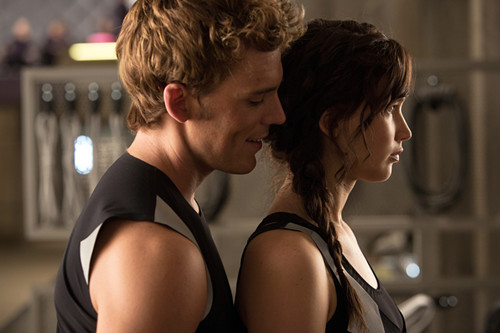
Disney put up a fight with Iron Man 3 and Frozen, but Catching Fire, the apex of financial success and cinematic quality for The Hunger Games series, managed to top the phenomenon of the first film.
Following flop after flop of young adult novels turned would-be teen film franchises (Lemony Snicket, Eragon, The Golden Compass), the Hunger Games came closest to repeating the unprecedented success of the Harry Potter films. Before popularity tapered out, the first two Games each managed to outgross any Potter film.
Realizing the potential of the most popular chapter in Suzanne Collins’ trilogy, Catching Fire couldn’t exactly escape the simplistic politics of its dystopian setting but succeeded in taking the exciting structure of the first film and cleverly raising the stakes and complexity.
7. The Avengers
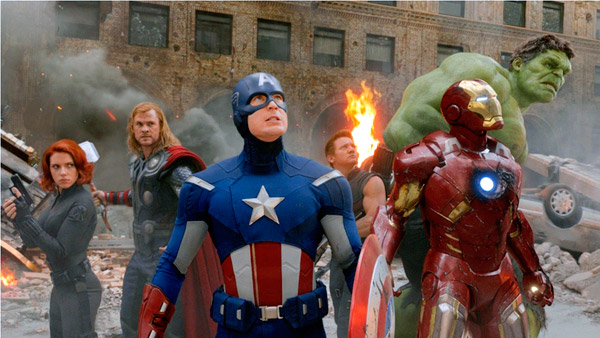
An ingenious reward for patient build-up and franchise expansion, The Avengers was novel blockbuster filmmaking. Even though the film’s seismic entertainment value just a few years later seems a little lacking compared to the current fluidity of Marvel’s most streamlined output ever, The Avengers is the touchstone of the brand’s global dominance.
The year before it seemed that Marvel had put Thor and Captain America in place just to have them become part of Iron Man’s crew in the team-up, but the camaraderie along with Mark Ruffalo’s replacement Hulk made for a ensemble that was delightful to watch in any capacity together onscreen. Like Age of Ultron three years later, The Avengers could be easily forgotten, but Joss Whedon’s levity lent Marvel fare a singular cheekiness from then out with that has led to some of its best and very worst moments, the latter being an overreliance on quips in place of actual humor (ahem Guardians and Vol. 2).
There are better Marvel movies out there, and far better superhero films, but in its moment The Avengers felt like an event, something that only the momentous zeitgeist surrounding Black Panther can equal. Its pleasures felt earned, and while Infinity War this summer might offer more mayhem on a grander scale, it won’t be nearly as much of a watershed moment for caped cinema.
6. Harry Potter and the Deathly Hallows Part 2
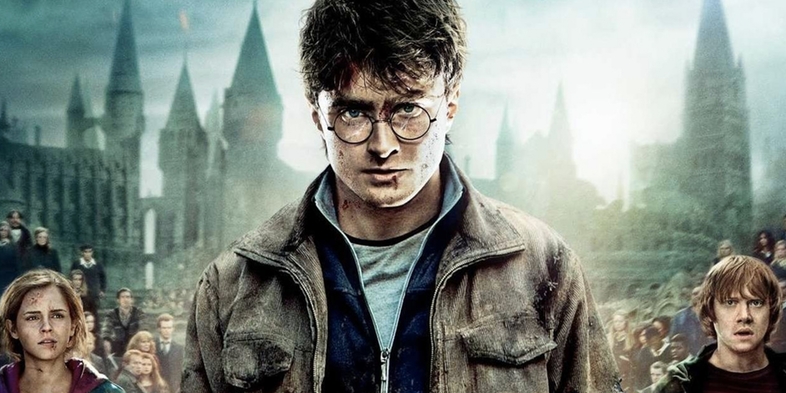
A fine finale but a far cry from the series’ best, Harry Potter and the Deathly Hallows Part 2 finished its run with the highest domestic numbers of the franchise, though when adjusted for inflation nothing ever outgrossed The Sorcerer’s Stone.
Part 2, in delivering a bewildering, roller coaster climax, really only suffers by way of the questionable choices made by J. K. Rowling in the final chapters of her seven-part book series. Harry’s death-limbo sequence with Dumbledore is some of the best stuff Rowling ever wrote, but the cheesy epilogue, on top of the simple Christ allegory of Harry’s end sacrifice, makes for a less than substantial sendoff to a beloved series.
That said, David Yates had become comfortable directing the last half of the series, and he makes the most of the latter half of Deathly Hallows as Part 1 left it. The Gringotts break-in and even the exposition-heavy montage involving Snape’s memory are thrilling moments. But as the shortest film in the franchise, Deathly Hallows could have taken its time in somber conclusion rather than settle for swift action and a brief departure.
5. Harry Potter and the Sorcerer’s Stone
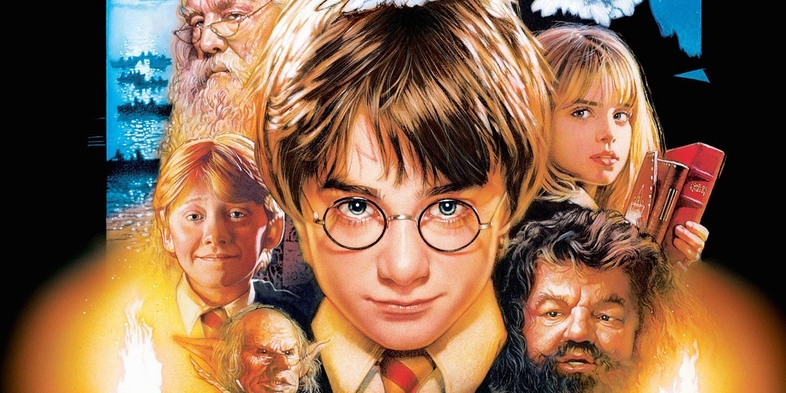
Barely edging out its fantasy adaptation opponent in The Lord of the Rings: The Fellowship of the Ring, the first Harry Potter film would incite a decade of unparalleled global fan fever even after the books were completed.
Though not anywhere close to the series’ finest, on its own Chris Columbus’ first incarnation of J K Rowling’s exuberant world remains a comfy children’s classic. Establishing Potter beloved trademarks of Quidditch, Hogwarts classes and fantastic beasts, Sorcerer’s Stone boasts the kind of magic that feels more real the more nostalgic you are for the series. The perfect cast of the now-famous lead trio and British acting elites is wonderful to watch, and John Williams’ score is rich and iconic.
If it weren’t for the Scooby Doo-tier mysteries guiding first few episodic stories, Sorcerer’s Stone would be a real classic. Instead it can settle for being a defining part of modern fantasy filmmaking.
4. Toy Story 3
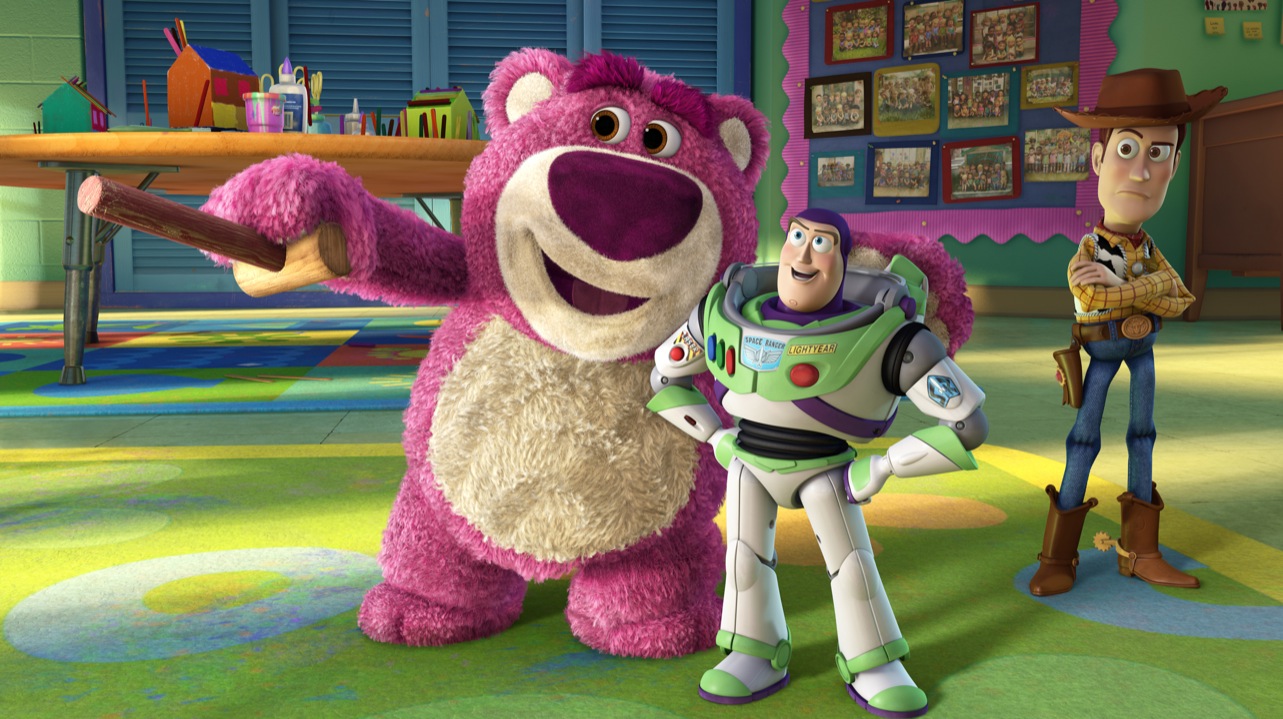
The swan song of Pixar’s untarnished streak, Toy Story 3 was an uncalled-for and yet still surprisingly brilliant addition to the studios canon. Toy Story has been the only Disney/Pixar film to spawn worthwhile sequels – Cars 2 and 3 saw diminishing returns while Monsters University and Finding Dory earned plenty to make up for it.
Gracefully discussing the passage of time, acceptance of change and the pains of growing up, Toy Story 3 is one of Pixar’s last genuinely mature films, Inside Out notwithstanding. Aside from the easy profits, Disney has no reason to be tempting fate with a fourth film. Toy Story 3 wasn’t just another sequel, but a final chapter – its finality will be tampered by simple corporate greed.
3. Spider-Man
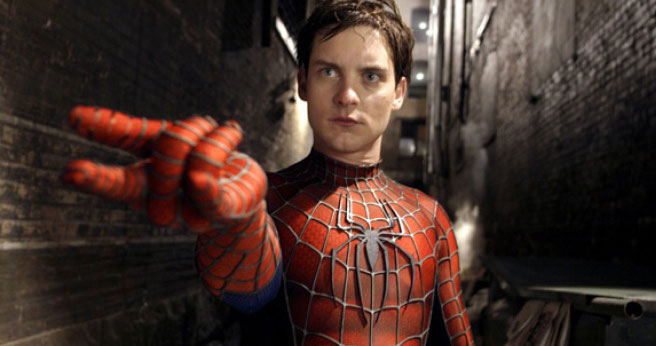
Sam Raimi’s first iteration of what comic book movies ought to be is quaint, but even a decade and a half after the fact the original Spider-Man is a masterwork of the visual and emotion potential of superhero films.
Raimi pulls off a cinematically coherent, flawlessly edited film that mimics the panel-by-panel pacing and immediacy of a comic book. Most outstandingly the 2002 Spider-Man fulfilled the template for the superhero origin story better than anyone had at the time, and it has yet to be topped in that regard.
The casting is fundamentally great, the wisdom is timeless, and the hilarity – both purposeful and that which only memes can reveal as genius – is potent throughout.
Raimi’s particular stylization more than overcomes some of the dated visual effects and the few drawbacks to his trilogy’s signature brand of corniness.
2. The Dark Knight
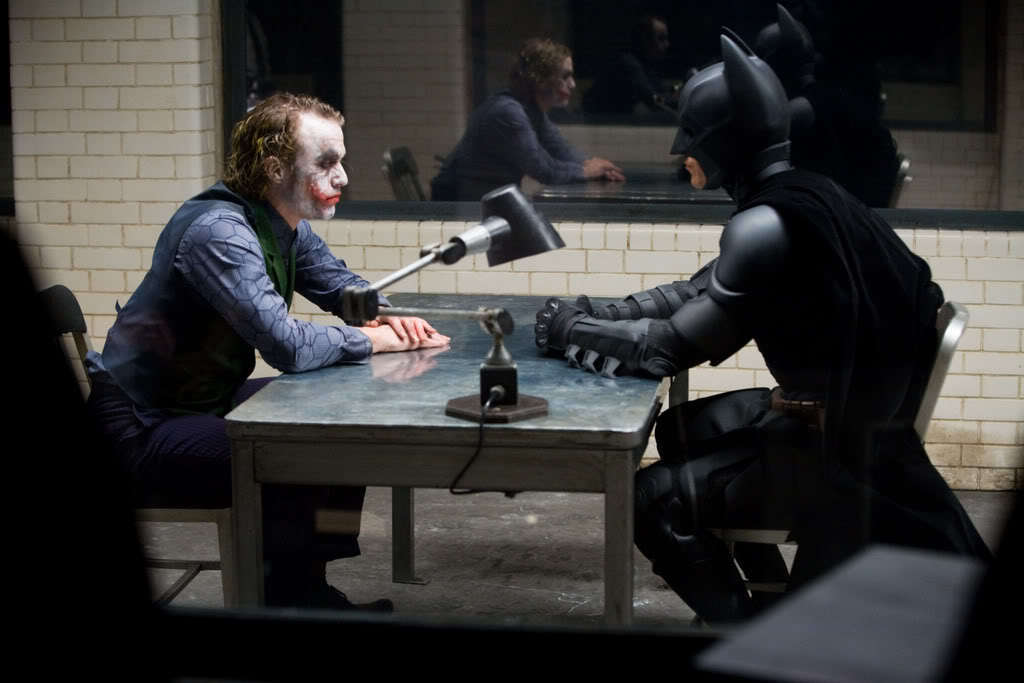
One of the most profound cultural milestones of the 21st century, The Dark Knight was obviously elevated by the ghost of Heath Ledger in his truly captivating turn as The Joker. But Ledger’s villainous Oscar-winning performance was just icing on the cake for one of the few masterful blockbusters to grace the silver screen this century.
Mounted by the balance between epic scope and tangible realism, the grittiness of Batman Begins was realized to its zenith in what is arguably Nolan’s most well scripted and directed film. The Dark Knight Rises, along with Interstellar, would see a noticeable decline in the quality of Nolan’s output as his ambitions began to exceed his abilities. Back he kept his reach within his imagination – Nolan flourished with The Prestige, Inception and the Batman film in question.
At the time The Dark Knight broke multiple records including midnight sale, opening day, opening weekend to name a few. With ten years of hindsight, we can definitively say that Christopher Nolan’s blockbuster masterpiece earned every penny. The Dark Knight is unmatched in brawny, thought-provoking entertainment value – something like one of the best season’s of television edited into 2½ hours of exhaustive, exhilarating cinema.
1. The Lord of the Rings: The Return of the King

A most splendid sendoff to a cultural phenomenon, The Lord of the Rings: The Return of the King dominated every part of the cinematic landscape in 2003 and deserved every bit of attention and recognition.
Let alone the fact that it matched records for the most Oscar wins with 11 total, outgrossed each of its previous installments in unprecedented fashion, and became just the second film to gross over a billion dollars worldwide.
Upon release, anticipation for The Return of the King was at a fever pitch for The Lord of the Rings as a fandom and a powerhouse film series. This gargantuan epic was riding a long-travelling hype train after 6 years of preparation, and the final product is one of emotive intimacy and impossible scale we’re unlikely to ever see again in the current state of Hollywood.
An exercise of purposeful scripting and visual storytelling, the full four-hour vision of The Return of the King is a meticulous and mature work of pure climax, spectacular mythmaking and profound feeling. If somewhere in the grand splendor of the film’s final act you are not reduced to tears, you just may be a robot.
Audiences may have been antsy during the string of multiple endings, but the execution of them is classic and succinct – so many impactful moments are communicated without dialogue. The labyrinthine world building of Tolkien’s writing was manifested so convincingly onscreen by this point that expressions were enough – as Arwen and Aragorn reunite, as the hobbits drink together again back at the Green Dragon, as Frodo turns and smiles on the ship to the Grey Havens.
With the trilogy aging finer year by year, it’s safe to say The Lord of the Rings as a whole is the most essential work of popular cinema in the 21st century, with The Return of the King beings its crowning jewel.